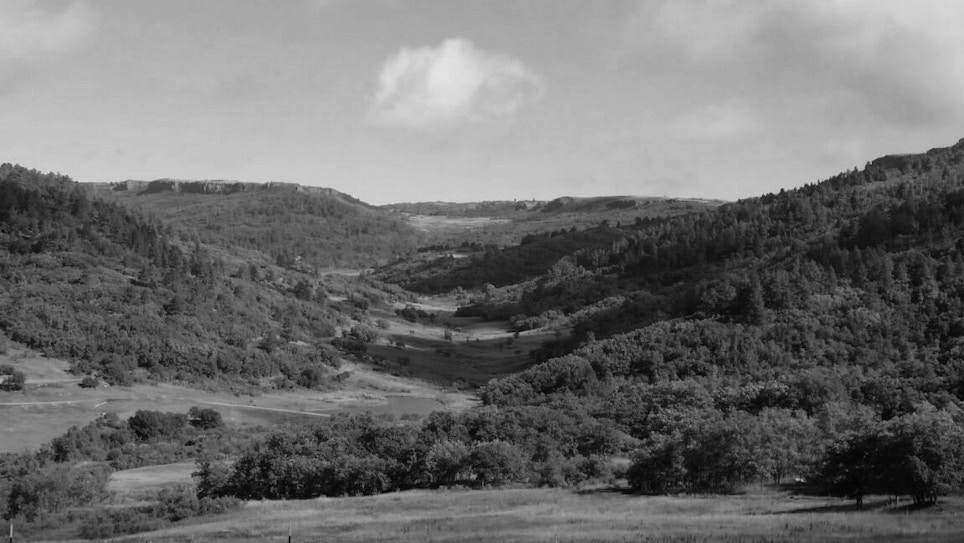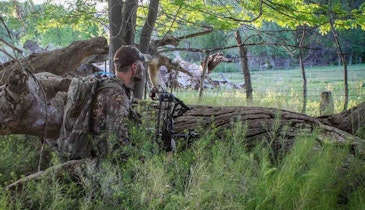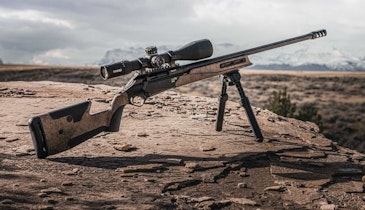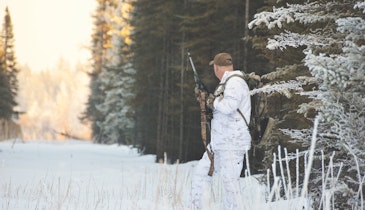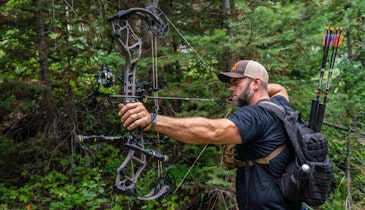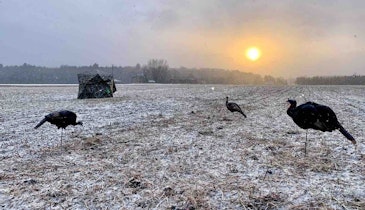When Sage invited my two college running buddies and me to go mule deer hunting in his “secret spot” in Colorado, I was stoked — and way too cocksure for a bowhunting newbie who had never killed anything bigger than a backyard squirrel with an arrow.
I was in my mid-20s and heading into my third season of nonresident muley hunting in western Colorado. The Sage . . . well, he was something else. We’d met at work, and I was not sure exactly how old he was. A colleague told me he’d been an infantryman in WWII who had fought the Japanese for two years on the march north through the Pacific Island chains, so he had to be in his 60s. He was about 6 feet tall, rail-thin, with a permanent 5 o’clock shadow and a little tuft of gray hair on top of a mostly bald head that was deeply tanned, like a walnut. He smoked constantly, liked Jim Beam neat and cold Budweiser from the can, his steaks rare and had dancing eyes full of mischief. And he loved bowhunting.
Disco Don, Attaboy Eddie and I had been coming to hunt the same general area for three years, while Sage hunted nearby, always alone. We called him Sage because of his sagacious sayings on all things, including hunting — and none of us save Sage had ever gotten a shot. Most times, the Three Stooges — that’s what he called us — never even found a decent buck to chase. That’s because we were dumb as a box of rocks who thought the best way to hunt deer was to show how tough we were by hiking regularly.
Sage, on the other hand, would climb up to a spot right behind the trailer in the dark and stay there all day, never leaving his spot until it was too dark to see. At first, we just thought he was old and lazy, and just plain lucky when he’d kill a buck.
It was year three, after Sage arrowed another nice one, that I swallowed my pride and asked if he’d show me how he did it. So, he told me, and the rest of that week, while Attaboy Eddie and Disco Don took off for parts unknown, we climbed to his spot well before daylight and glassed. We saw deer every day — later I realized Sage had picked this spot because it was a natural funnel between two lush bowls the deer lived the good life in — and I even made two stalks on bucks, with no success. Sage hunted with a recurve, and I had my old six-wheel Bear Alaskan, one of the first compounds sold to bowhunters that I was lucky to hit the broad side of a barn with at anything past 25 yards. Even though I never shot an arrow, I was stoked, all because Sage took me under his wing and showed me what had taken him a lifetime to learn.
Life does go on, and as the years went by, the Three Stooges grew into men with real jobs and obligations. I moved away to pursue my dream of becoming an outdoor writer, and while I lost touch with most all my old college teammates and friends, I never completely lost touch with Sage. We talked on the phone only a couple of times a year — he was from that generation that believed actions speak louder than words — but he was always in my thoughts, especially when I was in the woods. Before I moved away, he showed me lots of the little things that differentiate a wannabe from a real woodsman. More importantly, he taught me a lot about what it takes to be a man.
When I got the call that Sage had cancer, I felt like I’d been kicked in the ribs. I guess all those years of Lucky Strikes had finally caught up to him. Somehow, I thought that tough old bird would never die, but then, none of us is Tinker Bell. When I saw him for the last time, he was still a man of few words, but those he did speak had meaning. He told me a lot about his days during the war, how horrible it had been and how it had, more than anything, made him the man he was. That’s why he liked to hunt a lot and mostly alone, to be away from the hustle and bustle of the world and in a place where he didn’t have to listen to those who talked a lot with little to say.
In the end, I thanked him for taking me under his wing and being a mentor who taught me so much more than how to be a bowhunter. One of his most important lessons was how important it is to be able to look yourself in the mirror every morning knowing you had done things the right way, even when nobody else was watching.
Sage also taught me that young men need mentors, adults who can rein them in when they get a bit big for their britches and have earned their trust so that when life gets hard, as it is wont to do, they have a place to turn where they can unburden themselves without fear of being shamed. Few places on earth are better for this than hunting camp.
I miss you, old friend.
